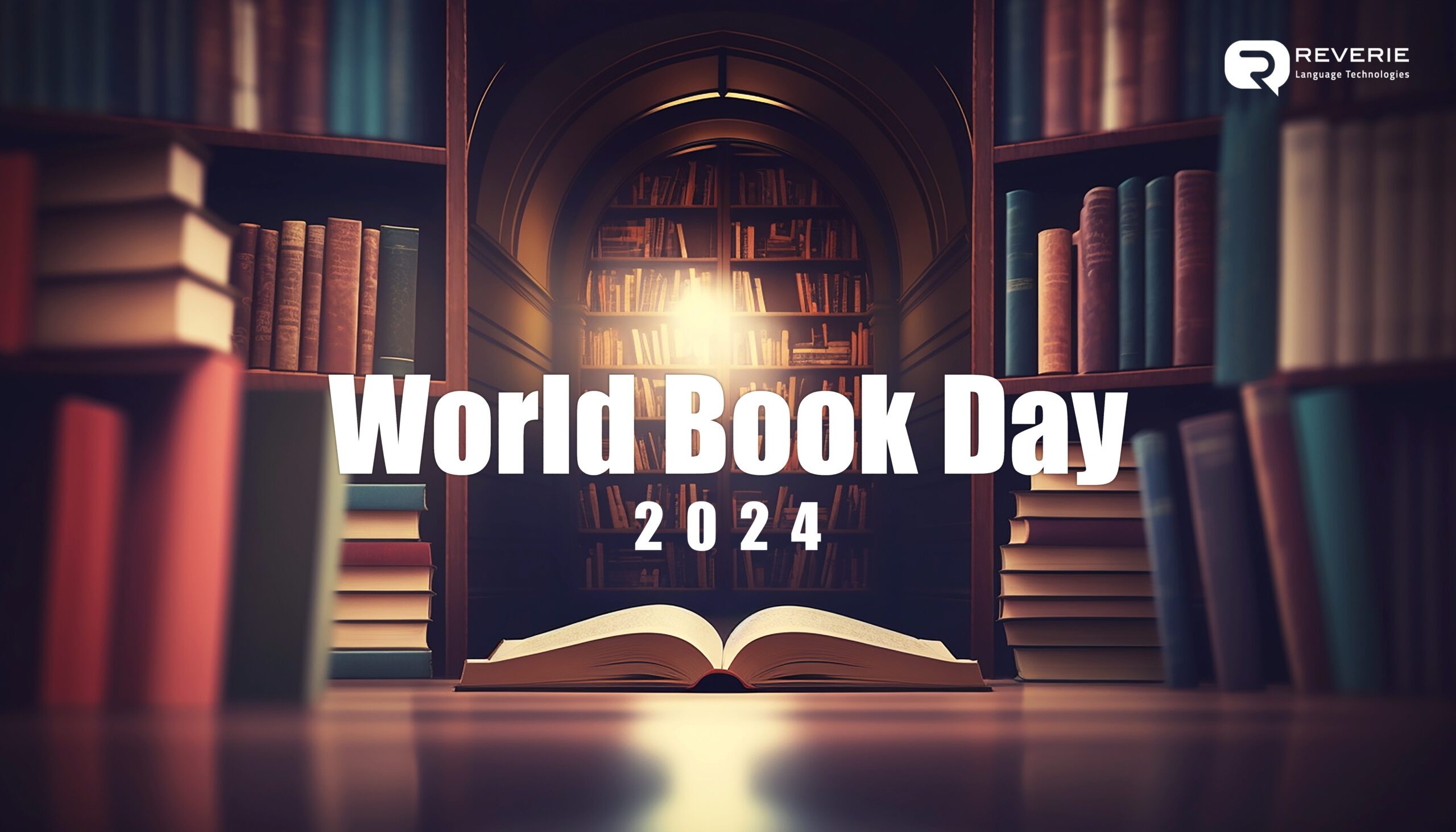Every year, on April 23, we unite to celebrate World Book Day – a joyous ode to literature and reading. It aims to instill the love of books and promote the art of reading, especially among young people. Around the world, various events are organised to celebrate World Book Day and encourage people to read.
It is a global observance that was established by UNESCO in 1995 to honour the anniversaries of two titans of literature:
- William Shakespeare
- Miguel de Cervantes
The day is dedicated to all the authors, illustrators, and books in all languages. However, it’s not just a day to appreciate the literary giants of the past. It also serves as a platform to promote language diversity and cultural heritage.
To preserve the rich diversity of languages and cultural identities, it’s important to embrace language diversity. Yet, it is often overlooked. According to UNESCO, there are more than 6,000 languages spoken across the world. And a significant number of these languages are now classified as endangered.
World Book Day tackles this by celebrating and promoting literary works in various languages. It encourages translations and highlights authors from diverse backgrounds. Through such efforts, this day emphasises the beauty of languages while playing a vital role in preserving and appreciating linguistic diversity.
The Role of World Book Day in Promoting Language Diversity
Impact of World Book Day on Language Preservation
World Book Day provides a platform that features books and literary contributions in endangered languages. Here are a few ways this global event aids in language preservation:
- Showcasing Literary Works in Minority Languages: The event highlights books in minority languages to maintain and revive interest in these languages.
-
- Supporting Language Revitalisation Projects: Several World Book Day events link with broader language revitalisation projects. They may include:
- Publishing new works in indigenous languages
- Organising workshops
- Creating education materials for learners of all ages
- Supporting Language Revitalisation Projects: Several World Book Day events link with broader language revitalisation projects. They may include:
- Creating Public Awareness and Appreciation: Various events and media coverage of World Book Day raise awareness about rich linguistic diversity and its value.
- Partnerships with Educational Institutions: Many schools and universities participate in World Book Day by organising events to promote literature in native and endangered languages.
Highlighting Diverse Authors and Literature
World Book Day introduces the world to voices that might otherwise remain unheard. Let’s take India, for instance, the country has a rich history of literature in myriad languages. This day brings to light the authors and literary works in languages ranging from Assamese to Gujarati. It offers the opportunity to highlight works like P. Lankesh’s powerful Kannada short stories of Thakazhi Sivasankara Pillai’s Kayar in Malayalam. This can help expose readers to the richness of diverse languages and literature.
Supporting Language Diversity Through Literature
World Book Day emphasises translation and the global distribution of diverse literary works. Such events promote the idea that every literary piece deserves a global audience, regardless of its original language. In fact, initiatives like the translation of famous works into lesser-known languages, and vice versa can blend different cultures and ideas. This also enhances mutual understanding and appreciation of the other. For instance, translations of classic Russian and French literature into Malayalam or Punjabi open up new realms of experience and understanding. This builds bridges across cultural divides.
Initiatives to Encourage Native Literacy
One of the significant aspects of World Book Day is encouraging literacy in one’s native language. A number of educational and cultural organisations organise workshops and events to promote writing and reading in native languages. These initiatives help in developing linguistic skills and maintaining the value of lesser-spoken languages. For instance, a special reading session that promotes books and poetry in Maithili aims at increasing visibility and encouraging new generations to learn and carry forward their linguistic heritage. Such events ensure that such languages remain vibrant and continue to inspire new generations.
Community Involvement in Language Promotion
Community engagement is a key component of the World Book Day celebrations. It fosters language diversity and promotes multilingual literacy. Here are a few ways local events, education initiatives, and cultural engagement can contribute to language promotion:
Community-Driven Book Fairs
Books fairs and similar events are an excellent opportunity to share and promote books written in different languages. In India, cities like Delhi and Kolkata, host annual book fairs. These fairs feature several languages and dialects.
For instance, the New Delhi World Book Fair 2024 aimed at promoting the richness of Indian literature from various languages. Such fairs not only promote reading but also support local publishers and authors. These events are a great way to celebrate and appreciate these authors and publishers who produce works in lesser-known languages.
Engaging the Youth
Schools and colleges across the country host a variety of activities to celebrate World Book Day. These include:
- Special assemblies
- Reading competitions
- Drama enactments based on popular literary works in native languages
One of the prime examples of such activities is interactive storytelling sessions and workshops run by Kala Manthan. It aimed to enhance the understanding of Indian literature among students.
Celebrating Cultural Heritage
World Book Day provides an excellent platform for celebrating cultural heritage through language. For example, a group of like-minded people in Karnataka started storytelling sessions for students to promote the Kannada language. In these sessions, they would narrate more stories to teach children about the language, local customs, values, and history. Such activities help reinforce the emotional connection between the youth and their native languages.
Conclusion
Celebrating World Book Day promotes and appreciates linguistic diversity, especially in a country like India. By promoting the joys of reading in native languages and translations, World Book Day promotes inclusivity. Our varied linguistic landscapes define human experiences across the globe. This day allows us to recognise and embrace those experiences while enjoying literature. Reverie, as language technology, embraces this cultural celebration. We provide tools that enable individuals to read content online in their native languages. Connect with us to learn more.


